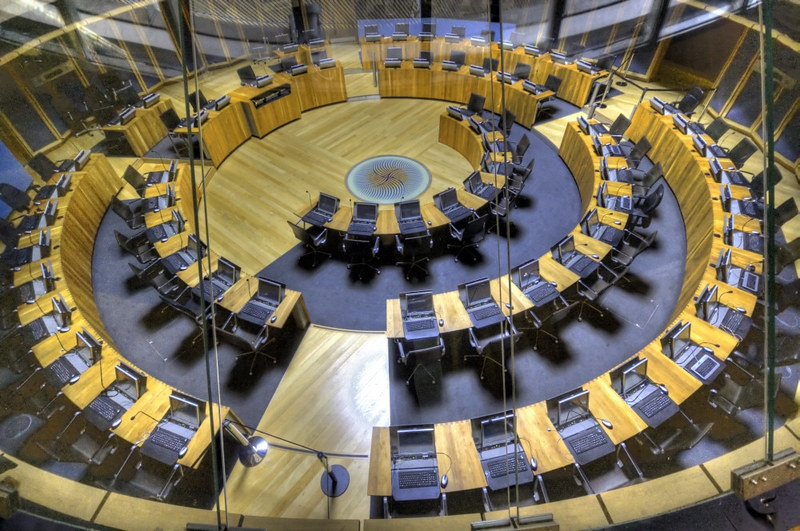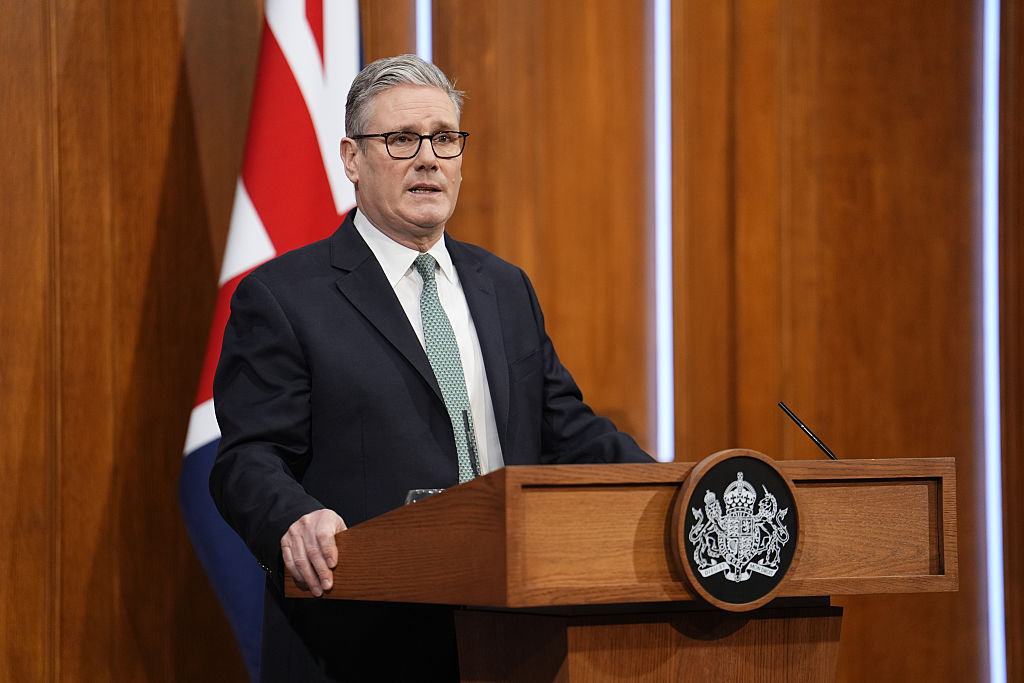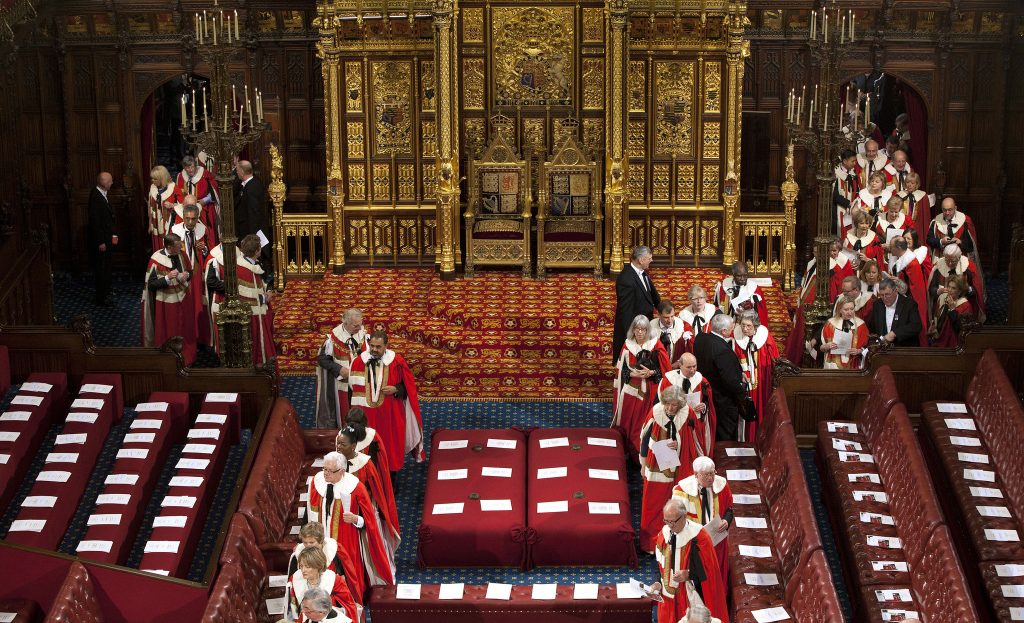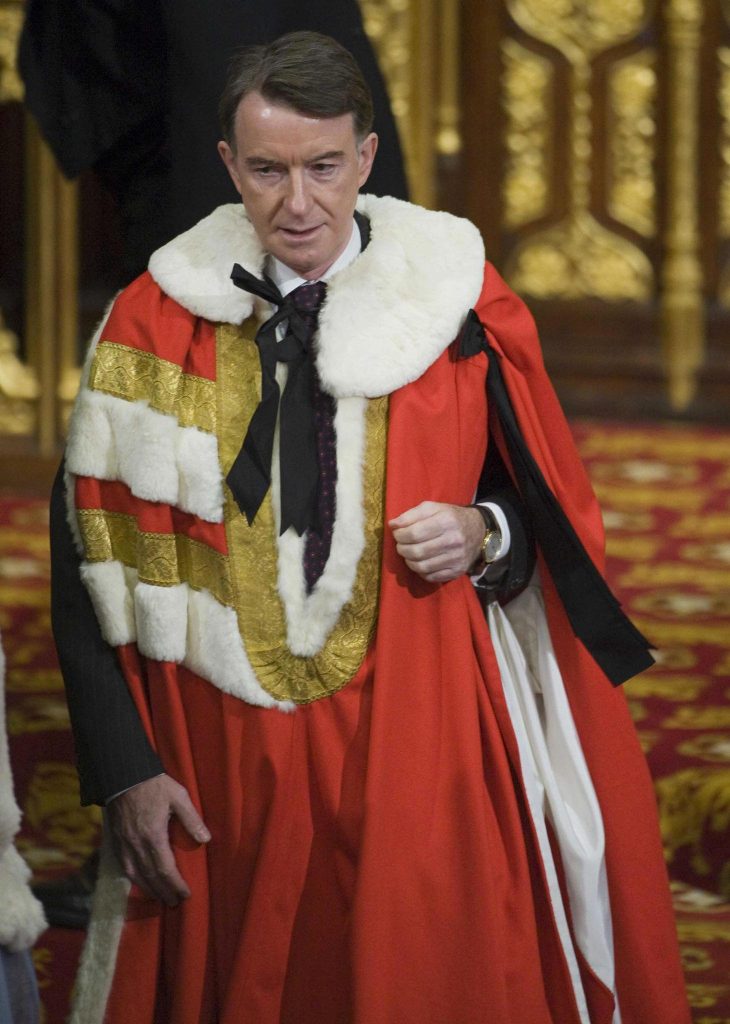Politics
‘Overwhelming support’ for ban on politicians lying

A HIGH-PROFILE barrister backed plans to make it a criminal offence for Senedd members and candidates to deliberately deceive the public.
Sam Fowles, of Cornerstone Barristers, gave evidence on former Plaid Cymru leader Adam Price’s proposals to disqualify politicians from the Senedd for deliberate lying.
The lawyer was involved in the Miller case against the then-Prime Minister over the propagation of the UK parliament and appeals that exposed the Horizon Post Office scandal.
Mick Antoniw, the Welsh Government’s counsel general or chief legal adviser, last week raised concerns the deception proposals are “unworkable”.
But Dr Fowles told members of the Senedd’s standards committee: “I would be very, very confident if I was asked to defend this in a judicial review.”
He described the proposals, which are set out in clause 64 of the elections and elected bodies bill, as clearly drafted and drawing on long-established legal principles.
Vikki Howells, who chairs the committee, raised concerns about the practical ramifications of criminalisation, suggesting it may be best left to the “robust” standards process.
Dr Fowles said deliberate deception fundamentally undermines confidence in democracy, pointing out that ministers and candidates sit outside of the Senedd’s regime.
Stressing the importance of independence, the barrister warned: “As is recognised in law, the appearance of a lack of objectivity is as damaging as a lack of objectivity itself.”
He said the matter is best decided by the courts, rather than by politicians appearing to sit in judgement on themselves, because it is more likely to give the public confidence.
Jennifer Nadel, co-director of Compassion in Politics, a cross-party think tank, warned faith in democracy and the political class is at an all-time low.
“This has overwhelming public support,” she said, highlighting an Opinium poll which found 72% in favour of similar measures on deception with only 7% opposed.
The journalist contrasted the example of a car salesperson knowingly selling a deathtrap, saying they have to face the consequences unlike politicians who mislead.
She described deliberate deception as fraud on the electorate that pollutes the public space and threatens to undermine the very nature of democracy.
Ms Nadel pointed out that Labour’s commitment to a Hillsborough law would introduce a duty of candour on civil servants that could be enforced through criminal courts.
She said it would be invidious for officials to face a higher duty than their political masters.
Asked by Peredur Owen Griffiths about the interplay with other legislation, Dr Fowles said a review found the proposals would not clash with defamation or human rights law.
He said an offence of deception would not create friction with Article 10 of the European Convention on Human Rights on freedom of expression.
He told the Plaid Cymru politician: “This seems to me a quintessential example of something that is a proportionate means of achieving a legitimate aim.”
Dr Fowles said defences listed in clause 64, such as for statements that can be reasonably inferred to be a matter of opinion or analysis, insert a safety valve for accused politicians.
The witnesses raised Singapore, Austria and Western Australia as examples of international best practice, firing a warning shot to extreme leaders who make false statements.
The Conservatives’ Natasha Asghar raised the risk of an avalanche of malicious complaints against politicians and would-be members of the Senedd.
Dr Fowles accepted malicious complaints are inevitable in any criminal or civil law but he expected vexatious and frivolous grievances to be “booted out very quickly”.
He said it is easy to infer motivation for malicious complaints and people will be reluctant due to the risks of prosecution for wasting police time or perverting the course of justice.
Ms Nadel agreed, saying the police and CPS will ensure the law cannot be abused by filtering out frivolous complaints and bringing cases in the public interest.
She said while a new hate crime law in Scotland led to 7,000 reports in its first week, which stuck in the public consciousness, but the number of reports has plummeted since.
Labour’s Mark Drakeford questioned the effectiveness of clause 64 in dealing with hard-to-distinguish cases “where fact and opinion collide”.
The former First Minister suggested deliberate deception should be dealt with under a recall process which would allow the public to remove Senedd members between elections.
Dr Fowles described the courts as the ultimate fact-finding forum, saying: “I think it’s proper to take these questions outside the realms of political combat.”
He told the committee political deception is akin to political bribery as he warned that public trust in politicians has fallen further since the introduction of Westminster’s recall system.
Highlighting an Ipsos poll, headlined “British public wrong about nearly everything”, the legal expert said: “A big part of that is because they have been misinformed.”
Ms Nadel opposed dealing with deception by recall, saying it could become a popularity contest with voters unwilling to sanction a demagogue despite dishonest statements.
She said: “It’s part of declaring the rules of the game rather than something that people can really decide ‘well, it wasn’t such a bad case of fraud’.”
Ms Neadel, also a former barrister, said polls show one in five people do not believe a single word politicians say – with only 3% believing more than 80% of what they hear.
She warned: “Facts are facts and we are at a very dangerous moment in history.”
Dr Fowles said clause 64 would help ensure politicians tell the truth, concluding: “It’s only by giving the public that guarantee that we can start to restore trust in politics.”
A crunch vote will be held during a three-hour debate about the proposals on July 2.
Politics
Ceredigion council tax expected to rise by 4.7 per cent

A BETTER financial settlement for Ceredigion from the Welsh Government along with a fresh grant is expected to see council tax bills in the county rising by less than five per cent this year, far below previous fears of a rise as high as nearly nine.
Last year, for the 2025-’26 budget, Ceredigion saw a council tax rise of 9.3 per cent.
While council tax makes up a proportion of the council’s annual revenue, a crucial area of funding is the Aggregate External Finance (AEF) rate from Welsh Government.
Ceredigion was to receive a 2.3 per cent increase on its settlement, some £3,388,000 for a total of £150,670,000, placing it at joint 13th of the 22 local authorities in Wales.
Following a later Welsh Government and Plaid Cymru agreement additional funding for local government was secured, giving Ceredigion additional funding.
Back in November, before the increased settlement was announced, Ceredigion Leader Cllr Bryan Davies said that early estimates indicated that an 8.9 per cent increase in council tax would be necessary, but an improved position of 6.9 per cent had been indicated as a result of a further modelling of service cost pressures and operational savings.
Following the improved settlement, members at the January meeting of Cabinet heard from Cabinet Member for Finance and Procurement Services Cllr Gareth Davies a recommendation for a 4.75 per cent council tax increase as part of a draft budget requirement of £221.493m was being mooted.
That position has improved again, following financial support towards the Mid and West Wales Fire Service Levy, members of the February 3 meeting of the council’s corporate resources overview and scrutiny committee heard, the funding now dropping the expected council tax increase to 4.7 per cent, equivalent to an extra £7.39 per month for the average Band D property for the next financial year.
Members of the committee agreed to note the 4.7 per cent figure, with the final council tax recommendation being considered by Cabinet on February 10; the final decision on the budget being made by full council on March 2.
international news
Mandelson quits Lords amid police probe over Epstein links

Peter Mandelson has announced he will retire from the House of Lords with immediate effect, as mounting political and legal pressure grows over claims he shared sensitive government information with convicted sex offender Jeffrey Epstein.
Parliamentary officials confirmed that Peter Mandelson formally notified the Clerk of the Parliaments of his decision, ending his membership of the upper chamber from Tuesday (Feb 4).
The move follows reports that the Metropolitan Police Service is reviewing allegations of possible misconduct in public office connected to emails said to have been forwarded to Epstein while Mandelson was business secretary during the 2008–09 financial crisis.
Downing Street has confirmed that material has been passed to police after an initial Cabinet Office review.
Government fury

Prime Minister Keir Starmer told cabinet colleagues Mandelson had “let his country down”, according to No 10, and officials are now drafting legislation that could strip him of his peerage entirely.


Removing a life peer is rare and would require an Act of Parliament.
If passed, Mandelson would lose the title “Lord” altogether — an extraordinary step that has only been considered in the most serious cases.
Senior ministers have described the alleged passing-on of market-sensitive government discussions as “disgraceful” and a “betrayal of trust”.
What police are examining
Misconduct in public office is a centuries-old common law offence that applies where someone in a position of public trust wilfully abuses that role. It carries a maximum sentence of life imprisonment.
Investigators will assess whether confidential information — particularly relating to government financial policy during the crash — was shared without justification and whether safeguards were breached.
At this stage, no charges have been brought.
Mandelson has previously apologised for maintaining contact with Epstein after the financier’s conviction, saying he regrets “ever having known him”, but he has disputed some of the latest claims and has not commented directly on the police review.
Political shockwaves
Opposition parties are pushing for further disclosure of documents relating to Mandelson’s vetting and his past roles.
Conservatives are expected to force a Commons vote demanding more information, while Liberal Democrats have called for a public inquiry.
Several MPs have also suggested Mandelson should be removed from the Privy Council.
The developments mark a dramatic fall for one of Labour’s most influential political figures of the past three decades, who only months ago was serving as the UK’s ambassador to Washington.
Now, with police examining evidence and legislation being prepared to remove his title, his public career appears effectively over.
More updates are expected as the investigation continues.
Community
Cilgerran Church in Wales school petition to be heard

A PETITION opposing proposed changes for a north Pembrokeshire school is to be heard by councillors later this week.
At last May’s meeting, Pembrokeshire County Council considered a report of the School Modernisation Working Group which outlined the findings of a review of education provision in the Preseli area.
A later July meeting backed a general consultation to discontinue Cilgerran Church in Wales Voluntary Controlled School, and to establish it as a 3-11 community school.
“In particular, the review considered the extent of surplus school places in the area, set against a significant decline in the pupil population,” the council in its consultation has said.
The consultation closed on January 30.
Hundreds have opposed the proposed changes, with a petition, on the council’s own website opposing the changes recently closing after gaining 391 signatures.
Any petition of more than 100 signatures triggers a debate at one of the council’s scrutiny committees, in the case of Cilgerran that debate taking place at Pembrokeshire County Council’s February 5 schools and learning overview and scrutiny committee.
The Cilgerran e-petition, created by Louise Williams, raised concerns including the school could become part of a federation, a loss of permanent head teacher on site, a shared head teacher would have to oversee several schools, loss of funding control and the ability to maintain the school’s current healthy and stable funding, and a loss of commitment to the church, in turn could impact on the school’s and pupils values, beliefs and cultural beliefs.
It said: “Ysgol Cilgerran VC school has strong links with the Church community in Cilgerran and we believe this will have a negative impact on the children who attend the school, the community of Cilgerran and the links between the two.
“We are proud of our school ethos and values which are strengthened by our links with the church. The school has close and strong relationships with our Church in Wales federation governors one of which is also our safeguarding governor.
“Our Church Federation governors work closely with the school and are regular visitors to the school and the children. They provide vital support and guidance to the school and have a positive impact on the Children’s education. We believe these links will be weakened by this proposal to remove our VC status and we believe this is an un-necessary action.”
The proposals for Cilgerran are part of a wide range of potential education changes in the county.
Two petitions, opposing the potential closures of Manorbier and Ysgol Clydau schools, were recently heard at full council and a further petition opposing the potential closure of Stepaside School has recently been launched, which has generated enough support to be heard at a future council meeting.
-

 Health5 days ago
Health5 days agoConsultation reveals lack of public trust in health board
-

 News7 days ago
News7 days agoCaldey still unsafe, survivors warn — despite Abbey’s reform claims
-

 Community6 days ago
Community6 days agoPembrokeshire students speak at national Holocaust Memorial Day event
-

 News13 hours ago
News13 hours agoPrincess of Wales visits historic Pembrokeshire woollen mill
-

 News7 days ago
News7 days agoKurtz raises Gumfreston flooding in the Senedd as petition deadline nears
-

 Crime4 days ago
Crime4 days agoPembroke man accused of child sex offences sent to Swansea Crown Court
-

 Education6 days ago
Education6 days agoAttendance concerns at Milford School reflect wider issue raised at the Senedd
-

 Community6 days ago
Community6 days agoCampaign to ‘save’ River Cleddau hits over 2,200 signatures





























